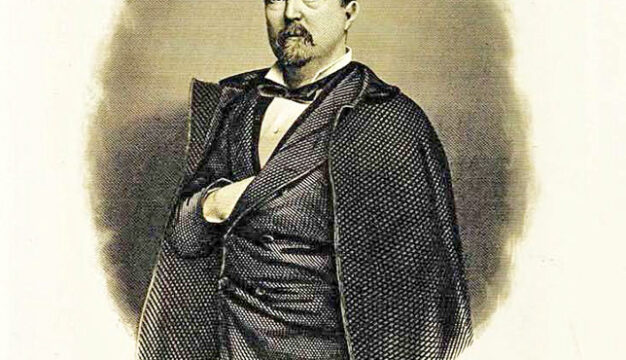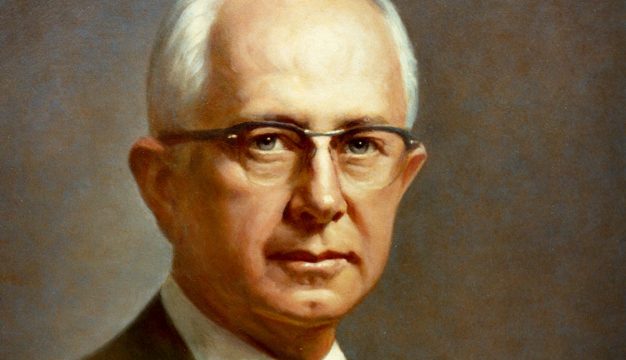Imani Perry
Birmingham native Imani Perry (1972- ) is a scholar of African American culture, law, literature, and race and a prolific author. In 2023, Perry won a MacArthur Foundation fellowship grant, but she is perhaps best known for South to America: A Journey Below the Mason-Dixon to Understand the Soul of a Nation, which won the 2022 National Book Award for Nonfiction. In that work, Perry uses her connection to Alabama to investigate the cultural and historical significance of the African Americans across time experiences. In the book, she essentially argues that in order to understand America, one must understand the South.
Perry was born in Birmingham, Jefferson County, on September 5, 1972. She has two children. She also has connections to Huntsville, Madison County, where her family owned property. Her mother, Theresa Perry, was an academic, and her adoptive father, Steven Whitman, was a social epidemiologist who taught at Miles College. When she was five, the family relocated to Cambridge, Massachusetts, where her mother attended graduate school. Theresa Perry would later teach at Simmons College and serve as dean of Wheelock College. Whitman later relocated to Chicago, where he was a senior epidemiologist at the present-day Institute for Policy Research at Northwestern University and headed the Sinai Urban Health Institute in Chicago for many years until his death in 2014. Perry earned a bachelor's degree at Yale University before subsequently earning a law degree and Ph.D. at Harvard University and later a master of law from Georgetown University in Washington, D.C. Perry then taught at Rutgers Law School in New Jersey prior to her 2009 appointment as the Hughes-Rogers Professor of African American Studies at Princeton University. In 2023, she was named the Carol K. Pforzheimer Professor at the Harvard Radcliffe Institute and the Henry A. Morss Jr. and Elisabeth W. Morss Professor of Studies of Women, Gender, and Sexuality and of African and African American Studies at Harvard University.
Much of Perry's work investigates the cultural and historical significance of the African American experience. Her research explores many subject areas, including hip hop, law, and race, as well as gender. In many of her writings, Perry often explores her ancestral ties to the American South, as she did in South to America: A Journey Below the Mason-Dixon to Understand the Soul of a Nation. Her work involved her meeting people on both sides of the color line. Perry produced a deeply personal and readable work that moves between her childhood in the South and her subsequent trail-blazing life.
Perry follows in the footsteps of two other notable Black expatriates of Alabama who returned to their roots in the South. Albert Murray spent much time in the state, two decades in the U.S. Army, and eventually settled in New York, where he took up writing. His experiences journeying to the South from New York are recounted in South to a Very Old Place (1971). And like Zora Neale Hurston, the Alabama-born and Florida-raised anthropologist and folklorist, Perry has also repeatedly headed south as Hurston did during her heyday as a core member of the Harlem Renaissance in the 1920s and 1930s. And similar to Hurston, Perry is intrigued by how human beings in southern spaces encounter each other. The never-ending bonds that she has to her particular familial beginnings manifest in Perry's interest in the southern landscape. She notes a house and some acreage that her grandmother's family owned in Huntsville and the stories about the property her grandmother related to Perry in her youth. Though it was described as very impoverished-looking, her grandmother noted the large size of the home, extensive grounds, fireplaces in each room of the house, and fertile fruit trees.
Mention of abundance also shores up Perry's interest in race and class as also revealed in her 2018 biography on celebrated African American playwright Lorraine Hansberry, Looking for Lorraine: The Radiant and Radical Life of Lorraine Hansberry. A Chicago native, she became the first African American dramatist to win the New York Drama Critics' Circle Award following the premiere of her 1959 play A Raisin in the Sun. This work captures the sorrow of one Chicago family during their attempts to purchase a house in a white neighborhood. The consequences of class, race, and the South are often intertwined, something not lost on Perry who, in her exploration of Hansberry's life, lays bare how, following the May 1963 violence in Birmingham, Hansberry was among several Black leaders who later famously met then-U.S. attorney general Robert Kennedy. Hansberry angrily left this meeting believing, as had other attendees, that neither Pres. John Kennedy nor his brother Robert, fully understood the gravity of U.S. race relations.
In her Hansberry biography, which won the 2019 PEN/Jacqueline Bograd Weld Award for Biography, Perry points to the messiness of the entanglement of American race and capitalism, as revealed in her mention of Hansberry once wearing a fur coat, angering her Black childhood peers. The financial well-being of select African Americans is, notably, a topic in which Perry has found herself the subject of unwanted attention following her sale of Welfare Queen, her Amy Sherald painting, for $3.9 million in 2021. What black wealth looks like in the past and present becomes pertinent. In writing this work about Hansberry, Perry emphatically states towards the beginning of this book that she was looking for her past in Lorraine's legacy and found her endeavor weird but also delightful.
Perry's interest in the African American experience also shows up in her concern over the safety of African Americans amid recent police brutality reports. This is made evident in her 2018 book May We Forever Stand: A History of the Black National Anthem, and her 2019 book Breathe: A Letter to my Sons, a book in which she, like many mothers, desires to see her sons do well and, in the case of African American mothers, survive the outcomes of racism in the United States. In the latter, Perry circles back to her 2005 book Narrative of Sojourner Truth on the nineteenth-century abolitionist and activist. In that work, Perry relays how Truth successfully filed a lawsuit to secure the return of her son Peter. Perry imagines how, until this mother and son were reunited, some older enslaved woman may have intuited Peter's fear.
Overall, Perry's lyrical and insightful nonfiction writing finds her courageously delving into the African American past and present. In 2023, the Alabama Humanities Alliance named Perry a Fellow, and she was selected as a MacArthur Fellow based on her giving "fresh context to history and the cultural expressions forged by Black Americans in the face of injustice."
Selected Works
Narrative of Sojourner Truth (2005)
More Beautiful and More Terrible: The Embrace and Transcendence of Racial Inequality in the United States (2011)
Looking for Lorraine: The Radiant and Radical Life of Lorraine Hansberry (2018)
May We Forever Stand: A History of the Black National Anthem (2018)
Vexy Thing: On Gender and Liberation (2018)
Breathe: A Letter to My Sons (2019)
South to America: A Journey Below the Mason-Dixon to Understand the Soul of a Nation (2022)






